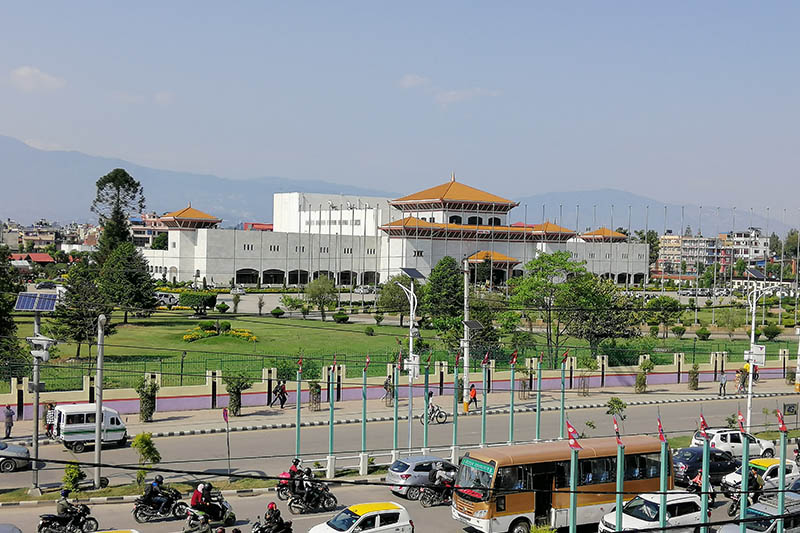Media Council Bill tabled in HoR
Kathmandu, August 29
Three months after it was registered in the federal Parliament, the government today tabled the controversial Medial Council Bill in the National Assembly, the Upper House.
The government came in for heavy criticism after it registered the bill in the Parliament on May 10, on the ground that the provisions in the bill would curtail the rights of the free press and press freedom.
It took the government more than three months of consultation with related bodies such as the Federation of Nepali Journalist and opposition parties including the Nepali Congress, before it could take the bill forward.
Tabling the bill, Minister of Communications and Information Technology Gokul Baskota said that the government had consulted all the stakeholders, while preparing the bill.
“There are many internal and external challenges, we have to overcome in order to ensure press freedom. We can easily tackle the external challenges, but internal challenges are difficult to deal with,” Minister Baskota said. He also said that the press abide by the constitution and respect people’s verdict and democracy. Baskota informed that the bill was tabled only after consultation with FNJ and other political parties. “Every provision in the bill is not wrong, if there any weakness, we can rectify after consultation,” he added.
Nepali Congress Lawmaker Radheshyam Adhikari said that the bill should be amended after discussion. The bill’s preamble talks about independent, decent and responsible journalism, but it is no where mentioned that media should be independent and autonomous body. The bill has the provision for formation of Nepal Media Council, which will monitor media in the country, and it will work directly under the government. Adhikari said the council should be an autonomous body.
“The MC should be accountable to the Parliament and the Parliamentary Committee should appoint the council members,” he added. The bill has proposed to impose a fine up to Rs 1 million on media outlets, editors, publishers and journalists if they are found guilty of damaging someone’s reputation. The bill also stipulates that if any media publish content in contravention of the code of conduct and if an investigation launched after the affected party’s complaint finds that such news content damaged the reputation of the complainant, then the council can impose a fine between Rs 25,000 and Rs 1 million on media outlets, publishers, editors, journalists and reporters.
Moreover, the bill stipulates that the council can order the erring parties to pay compensation if the content in media outlets damages the reputation of the affected party.
The bill proposes punishment for violating the code of conduct which includes suspending press pass of media persons and downgrading the classification of media outlets. Adhikari said the MC should not have the power to impose fine or take action against media.






